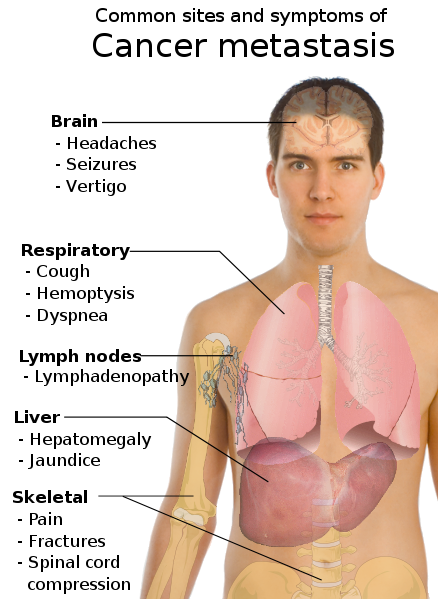
My Westie is 11 years old and is generally in good health. Lately he has been acting like he feels sick right after eating. He eats dry kibbles, the same kind he's always eaten and they've never affected him before. I'm overly cautious about him so I always fear the worst and want to make sure he doesn't have stomach cancer but I haven't been able to find anything about if dogs exhibit symptoms. Anyone know?
Alot of the symptoms are things that your dog may not be able to tell you. I suggest getting to a vet and having some tests done before it gets worse… here is a forum I found with a stomach cancer in dogs topic.
The only way to find out if he has it is to have him diagnosed by a vet.
These could also be allergy or intolerance signs. Dogs can suddenly develop them as they age, for no apparant reason. If he isn't already on a high quality diet, try switching him to that (Evo, Canidae, Natural Balance ((NOT NUTRO, NATURAL RECIPE, NATURE'S BEST, ETC)), or wellness). And get him checked out by a vet ASAP.
indigestion related issues, foul smelling burps, regurgitated water, bile vomiting episodes.blood mixed with bile these are some symptoms of a dog with stomach cancer. But……… some dogs do not have any symptoms at all until their stomach bloats and explodes. I had one that died from this and we did not catch it in time as the dog showed no symptoms. My suggestion is get it to the vet and if caught soon enough it can be treated.
Stomach cancer is rare in dogs and cats. Signs vary but may include vomiting (especially if blood is present), weight loss, anemia, and lack of appetite. Bowel movements may be dark and tarry in nature. most stomach tumors are malignant with evidence of spread to lymph nodes or liver making treatment difficult. Treatment is generally with surgery, especially for benign tumors, although they are rare.
Do you have your westie on senior food? There are a number of common signs of aging in dogs. the one that Westies, as white-coated dogs, do not experience is the graying of the fur on the muzzle and head.
Owners may notice that their dogs are:
Being less active
Sleeping more
Gaining weight
Moving more slowly [arthritis?]
Having difficulty standing after lying down [arthritis?]
More sensitive to heat and cold
Less responsive to verbal commands [hearing?]
Diet and Weight
An older dog can have an enjoyable life but at this stage some adjustments may need to be made. for instance, a dog whose metabolism has slowed and activity level has dropped may gain weight if his food is not reduced in quantity or in calories. an overweight dog not only may develop heart, kidney, or other health problems but the stress on its joints can lead it to be even less active. for a dog with arthritis, being overweight can mean significant additional pain in its joints.
There are several nutritious dog foods on the market that are made especially for senior dogs. however, before you change your dog's diet, be sure to check in with the veterinarian to see if there is a special diet recommended for your dog's condition, such as one low in salt for heart problems or easily digestible for intestinal trouble. And be sure to count any treats you give your Westie as part of the food total the dog gets each day!
Ideas for reducing a dog's weight [check with your veterinarian first!]
Reduce the total amount of the dog's daily diet by 25%
Switch to a commercial diet specially for formulated for overweight or senior dogs
Substituting low-calorie snacks for the usual between meal treats
Increase exercise gradually
On the opposite side, an older dog that is losing weight should see the veterinarian right away as this could be a sign of an internal problem. to be able to judge gradual changes, it is best to weigh your Westie twice a month. What is an overweight Westie? you should be able to feel the ribs but not see them. you can also check with your vet to see what weight is best for your particular dog.
If your Westie is less interested in his food, it may be that the senses of smell and taste have diminished. Heating the food will make it more appealing by increasing the scent and flavor. Do not promote finicky eating habits by substituting "fun" food. If the dog does not eat for a couple of days, take him promptly to the veterinarian.
I suggest that you take your little westie to the vet to just be sure.